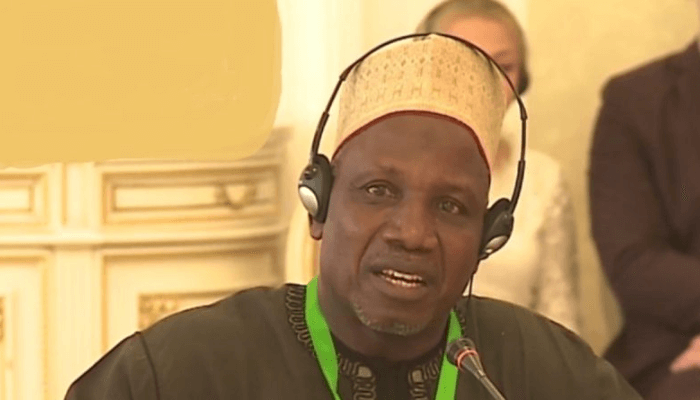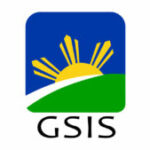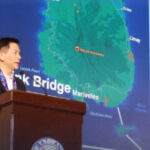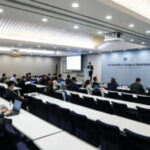Former Nigerian Justice Minister and Attorney-General of the Federation, Owalu Yadudu, says there are currently adequate provisions in Nigerian law to prosecute those who knowingly disseminate and at large individuals and recirculate AI-generated content that is harmful to Nigeria.
Yadudu, who is Professor of Law at the Bayero University, Kano (BUK), said this while delivering a valedictory lecture titled ‘Can AI Have Legal Personality: Challenges, Controversies and Reflections’ at the sixth Kano Social Influencer Summit, which concluded in Kano at the weekend.
“My opinion about this is that recirculation of harmful content on social media has put some people in serious trouble for which anyone involved should be prepared, in law, the issue of violation of rights is very technical, but Nigeria has a number of provisions in the country to punish anyone who participates in creating or recirculating falsehood against anyone”, he said.
Yadudu said there is a difference between human personality, which has an existing date of birth, the spirit that makes one recognisable, and is granted a legal personality distinct from personality, which in nature is an artificial entity made up of data and information.
According to him, humans have physical existence and legal personality, but AI does not have the same physical and legal existence as humans. But, note that AI products are owned by legal entities, who are responsible and accountable for any content or narratives associated with them.
The legal expert argued that owners of AI products can be legally accountable for every content or narrative they create, as the technology is the creation of programs based on Internet devices that are owned by certain entities, however, the process of holding entities accountable can be difficult and complex.
“The biggest question that needs to be answered is whether it is possible for the owners of AI technology companies, such as: Meta, Google, and others, based in the distant United States and European countries, to be held legally responsible in Nigeria, for any misuse of AI owned by them, taking into account the difference in legal realities in the two countries.
“My submission is that despite the differences in legal realities between the two countries, entities that own AI products can be held legally responsible, but doing so may be a little difficult, given the tremendous costs involved, and because of the difficult process, the best that anyone can do when they are the target of harmful AI deployment is to prevent themselves from having contact with the content.
“I want to cite the case of the former President of Nigeria, Muhammadu Buhari, who was the target of misrepresentations in AI-generated content, and the best thing the Nigerian government did at that time was to ban Google from operating in Nigeria.
“My position on this is that in the context of the above submission, the question is whether AI has legal personality such that one can take legal action in case of rights violations? My answer is in the affirmative. In the context of an argument, certain entities have ownership of the products they generate.
“However, unfortunately, in Africa, this can be very difficult and costly to do, as most countries on the continent do not have adequate legal and functional legal systems in place for redress.
“In the case of former President Buhari, the best the government could do was to ban Google, and when that was done, it was not effective because people who need the company's service found ways to connect despite the ban”, he said.
Yadudu said that the danger of over-dependence on AI is that the most dangerous pitfall is that most of the citizens, especially students in educational institutions, have stopped relying on its intelligence and knowledge in solving contemporary and academic questions.
“Now people are more dependent on computers and handset devices enabled by AI technology to generate answers that they throw at their teachers, and in most cases they cannot be held accountable, in some other instances, there are people who take advantage of technology to misinform, misrepresent, and create downright harmful content about other people that they broadcast, and many others engage in rebroadcasting, Due to which confusion is being created, and conflict is increasing in the country.
“While it may be a little difficult to apprehend the creators of these harmful AI content due to the inadequacy of the law and regulatory environment in Nigeria, they should be reminded that they cannot escape the judgment of the Supreme Being, as all religions have set responsibility on the creators of the acts thereafter. The judgment of the Supreme Being will also fall on all those who engage in sharing, liking and recirculating harmful content on or through social media. Includes A.
“In the call to action, citizens were urged to be active participants in its constructive deployment, rather than misusing AI for negative purposes, especially, in areas that bring positive change in society, while also suggesting careful consumption of AI, being responsible towards it”, he cautioned.











